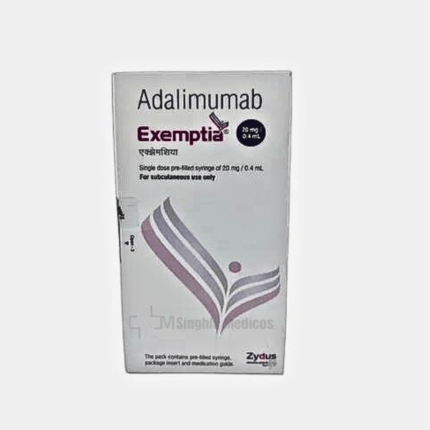

Abitate 250mg Tablet
₹20,748.55 Original price was: ₹20,748.55.₹10,500.00Current price is: ₹10,500.00.
![]() Prescription Required
Prescription Required
Salt : Abiraterone Acetate (250mg)
Manufacturer : RPG Life Sciences Ltd
Packing : 120 tablets in 1 bottle
PRODUCT INTRODUCTION
Abitate 250mg Tablet is used in the treatment of cancer of the prostate gland. It may be also used to treat other conditions, as determined by the doctor. It is sometimes used with certain other medicines as part of combination chemotherapy.
Abitate 250mg Tablet should not be taken on an empty stomach. Taking it with food may cause side effects. Your doctor will decide what dose is necessary and how often you need to take it. This will depend on what you are being treated for and may change from time to time. You should take it exactly as your doctor has advised. Taking it in the wrong way or taking too much can cause very serious side effects. It may take several weeks or months for you to see or feel the benefits but do not stop taking it unless your doctor tells you to.
The most common side effects of this medicine include vomiting, decreased potassium level in blood, edema (swelling), decreased white blood cell count, fatigue and increased liver enzymes. If these bother you or appear serious, let your doctor know. There may be ways of reducing or preventing them. Other than this, yellowing of skin, loss of appetite, shortness of breath, dark urine and nausea can happen, which indicate some liver problem. Your doctor might check you for liver function, blood pressure, and the level of potassium in your blood.
Before taking it, tell your doctor if have high blood pressure, heart problem, liver, or kidney problems or are taking any medicines to treat infections. Many other medicines can affect, or be affected by, this medicine so let your doctor know all medications you are using. This medicine is not recommended during pregnancy or while breastfeeding. It may harm your baby. The use of effective contraception by both males and females during treatment is important to avoid pregnancy. You may be asked for regular monitoring of blood glucose level while on treatment.
BENEFITS OF ABITATE TABLET
In Prostate cancer
SIDE EFFECTS OF ABITATE TABLET
Common side effects of Abitate
- Edema (swelling)
- Vomiting
- Decreased potassium level in blood
- Decreased white blood cell count
- Fatigue
- Increased liver enzymes
- Anemia (low number of red blood cells)
- Urinary tract infection
- Diarrhea
- High blood pressure
- Cough
- Hypercholesterolemia (high cholesterol)
- Joint swelling
- Increased levels of blood fat
- Altered blood sugar leve
References
-
Briggs GG, Freeman RK, editors. A Reference Guide to Fetal and Neonatal Risk: Drugs in Pregnancy and Lactation. 10th ed. Philadelphia, PA: Wolters Kluwer Health; 2015. pp. 4-5.
Disclaimer
Singhla Medicos’s primary intention is to ensure that its consumers get information that is reviewed by experts, accurate and trustworthy. The information and contents of this website are for informational purposes only. They are not intended to be a substitute for professional medical advice, diagnosis, or treatment. Please seek the advice of your doctor and discuss all your queries related to any disease or medicine. Do not disregard professional medical advice or delay in seeking it because of something you have read on Singhla Medicos. Our mission is to support, not replace, the doctor-patient relationship.
Shipping Policy
We ship across India. Note – this is subject to change as per Company Wishes. Packages will be shipped in 24 working hours. we are closed on Sundays and will reach you in the next 2-4 days post shipping. We give the estimated time of delivery on the shipping page. However, these are indicative and depend on our shipping partner.
Delivery
The delivery times are subject to location, distance, and our logistics partners. We are not liable for any delays in delivery by the courier company/postal authorities but will help you track down a package through our partner courier services.
Your purchases may reach you from various locations in more than one package. But rest assured, you will be charged one delivery fee for the entire order. As soon as your package ships, we will email you your package tracking information.
We are bound in coverage by their reach even though we use some of India’s largest logistics companies for shipping. In case your address is in a location not served by them we would contact you to find an alternative solution to make your products reach you.












Reviews
There are no reviews yet.